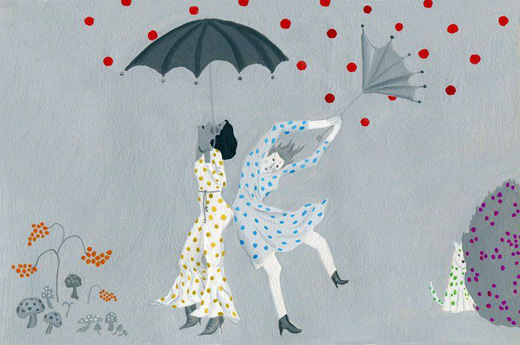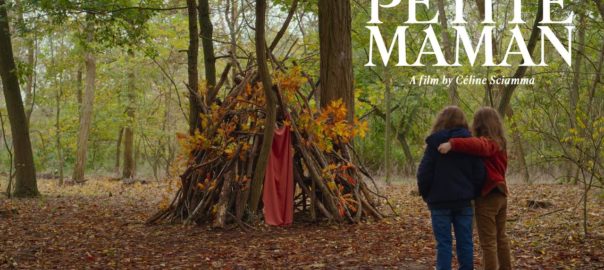 (Republished as a public service, a VanRamblings repost of an April 22, 2018 column)
(Republished as a public service, a VanRamblings repost of an April 22, 2018 column)
Today is Earth Day. How can you play your part?
Well, if you’re a senior, or over the age of 50, maybe by not dying prematurely from the stress and pain associated with the varicella zoster virus (shingles) or postherpetic neuralgia, so you can be around to witness, participate in and contribute to making ours a greener and more environmentally sound planet.
Are you over the age of 50, or do you have a parent, friend, spouse, relative, neighbour or colleague who is over the age of 50? If so, you or someone close to you will want to make arrangements this coming week to have the new Shingrix vaccine administered at your, or their (if it’s someone you’re advising) doctor’s office, or local pharmacy.
Those aged 50+ are susceptible to contracting shingles, probably the single most painful and sustaining malady a middle-aged or older person might experience.
Many millions of North Americans, especially those aged 50+, are susceptible to an attack of shingles, caused by the same virus that causes chickenpox.
Once the varicella zoster virus infects a person, it lies dormant for decades in nerve roots, ready to pounce when the immune system is weakened, say, by stress, medication, trauma or disease. One-third of North Americans eventually contract shingles, but the risk rises with age; by age 85 half of adults will have had at least one outbreak of shingles.
Just have a look at the following testimonials (as always, click on the preceding link) …
Comment from Francie, age 66
I had the worst pain from shingles, it was just off the charts! I was unable to sleep, eat, walk, or talk for three months.
Comment from David, age 70
On March 26, 2015, I had my first annual anniversary with the horrible and constant pain of post herpetic neuralgia (shingles). The first 9 months was a nightmare; especially at night. It’s in my armpit, and all along my shoulders; so it’s too painful to have clothing or even a sheet touching my skin. Nothing helped even as new medications appeared. My doctor tried everything and couldn’t understand why my shingles just got worse. He told me he’s had patients who suffered with shingles for 7 years. So by the time this goes, I’ll be dead; or want to be.
Once you’ve contracted shingles, there’s nothing you can do about it, except live as best you can with the pain and the prejudiced lifestyle.

However, there is something you can do to prevent contracting shingles.
Merck’s Zostavax was first brought to the market in 2008, with an efficacy rate that reduced the risk of shingles by 51%, and a 67% preventive rate of contracting shingles a second time. Good, but not good enough.
This year, however, a new medication from Glaxo-Kline, called Shingrix, came onto the market, that studies indicate reduces the risk of contracting shingles by 97% for people in their 40s, 50s and 60s, and 91% for those in their 70s and 80s, also reducing the risk of contracting shingles again by 86%, lasting much longer than its Zostavax predecessor, which starts to lose its protection after only 3 years.
Needless to say, we had the Zostavax vaccine administered some years ago, and have now had the first of two Shingrix shots administered.

Sharon Livingstone, a gerontologist, is ‘adamant’ people get the Shingrix vaccine. She herself got the Zostavax shot 10 years ago but, as can happen, she contracted shingles four years ago. She now encourages the seniors she sees to be vaccinated with the new and more effective Shingrix vaccine.
The headline in the January 1, 2018 Globe and Mail article, by health reporter André Picard, called Shingrix “a game changer” …
More than 130,000 Canadians are diagnosed with shingles each year — most of them seniors.
Anyone who has had chickenpox — which is about 90% of people born before 1995 — can develop shingles later in life, and about one-third do. The varicella zoster virus lies dormant for years, or decades, and erupts for reasons that are unclear, usually after age 50.
The pustules on the skin are bad enough, but one in eight of those afflicted with shingles suffer post-herpetic neuralgia, the medical term for lingering and sometimes debilitating nerve pain. The virus can also destroy nerves, causing blindness or deafness and, in rare cases, lead to grave infections such as meningitis and flesh-eating disease. Shingles also increases the risk of heart attack and stroke.
Yet, the misery that befalls so many is largely preventable.
Now there is a new vaccine, Shingrix, that dramatically improves protection — showing itself to be up to 97 per cent effective in large clinical studies.
“This is a game-changer,” says Dr. Iris Gorfinkel, a Toronto physician.
The blisters arising from a shingles incident tend to heal in a week or two to form crusty scabs that eventually fall off. But for about 15% of people, shingles does not end there. Instead, it leaves them with deep, searing nerve pain — a condition called postherpetic neuralgia, or PHN — that can last for months or years and has no treatment or cure. More than half the cases of PHN affect people over 60.

VanRamblings first became aware of shingles when a neighbour contracted the infection 5 years ago. For a period of one year, he couldn’t move out of his co-op apartment, couldn’t sleep (except when he passed out from exhaustion), wearing any kind of clothing was near impossible, and having anything touch his skin brought him excruciating pain. Every male in VanRamblings’ housing co-op, and all of VanRamblings’ close friends, made arrangements to have the $180, one time, Zostavax vaccine administered.
Now that Shingrix is on the market — requiring two shots, two to six months apart, at $150 apiece — all of VanRamblings’ close associates have either had the Shingrix shot, or are making arrangements to do so. Note should be made that — thanks to our new New Democrat government over in Victoria — British Columbia is the only province in Canada that allows pharmacists to administer the Shingrix vaccine (which is where we got the first of our two shots on Wednesday this past week).
You will need a prescription from a doctor, though. And, yes, as the video below suggests, there is some (ouch!) pain involved — even five days later — and a lingering malaise. But, hey, VanRamblings is still posting everyday, so it can’t really be that bad, can it (it’s not, we’re just a big baby)?
And, oh yeah, make arrangements this week to get your first Shingrix shot.







